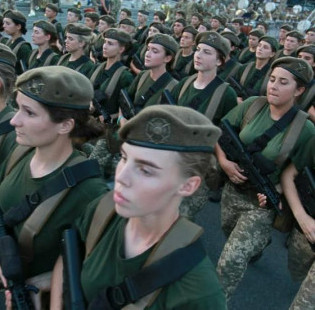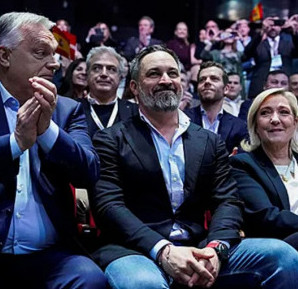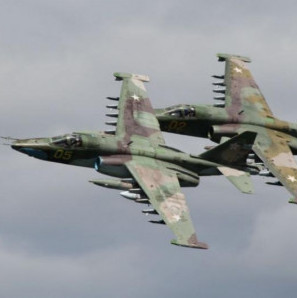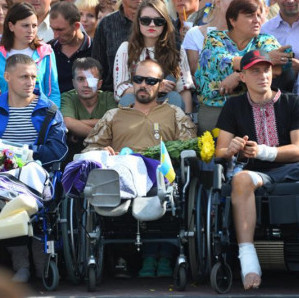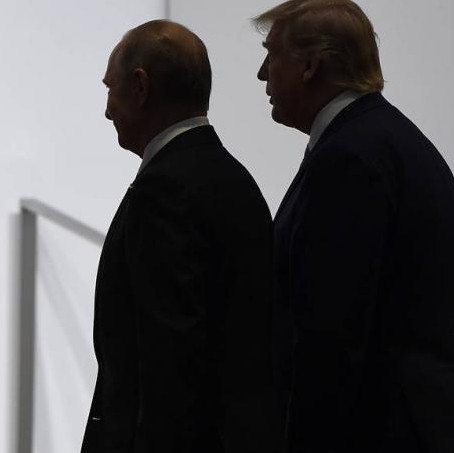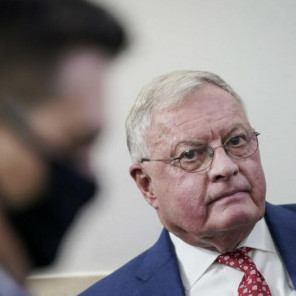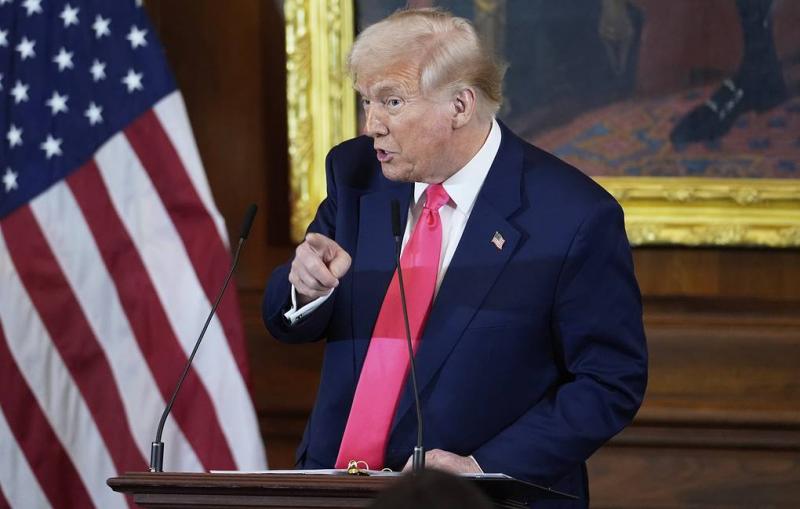
- Press review: EU, UK weigh new sanctions on Russia as Trump’s threat to Iran may spark war
- Press review: Rare earth talks boost Russia-US ties as EU seeks influence in Central Asia
- Press review: Germany mulls Nord Stream restoration as Zaporozhye NPP sparks talks
- Press review: Kiev challenges Black Sea deal as the US reasserts China as its top rival
China’s top diplomat visits Moscow to discuss a broad agenda; Ukraine prepares to host foreign troops; and the US stands ready for a trade war. These stories have topped Wednesday’s newspaper headlines across Russia according to TASS news agency.
Media: Putin expects China’s Xi to visit Moscow in May
Chinese President Xi Jinping will be the main guest at Russia’s celebrations of the 80th anniversary of the Victory in the Great Patriotic War in May, Vladimir Putin said at a meeting with Chinese Foreign Minister Wang Yi. According to the top Chinese diplomat, the upcoming mutual visits by the two countries’ leaders will give a new impetus to relations between Beijing and Moscow. Experts don’t rule out that Wang arrived in Moscow to discuss the international agenda in general, including the Ukraine crisis and Russia-US dialogue, Izvestia writes.
"At this point, it is important for Russia and China to maintain a mechanism for aligning their positions because developments are unfolding rapidly in terms of Russia-US relations," said Yulia Melnikova, program head at the Russian International Affairs Council.
Basically, Wang’s visit to Moscow is an important reminder to the West that Russia has considerable diplomatic support from China, Kirill Kotkov, head of the Center for Far Eastern Studies at the St. Petersburg-based International Association of Integration Cooperation, emphasized. "Both parties have a friendly attitude towards each other. The visit makes it clear that Russia is not alone. Moreover, the West has been unable to isolate Russia in the past three years, which should be seen as a major success by Russian diplomacy," the expert elaborated.
As global politics is going through serious changes, it is crucial for Russia and China to directly discuss all the intricacies, which is what Wang is doing as he is not just a foreign minister but also holds a higher position in the party, Andrey Karneyev, head of the School of Asian Studies at the Higher School of Economics, told Vedomosti. However, no surprises should be expected from the visit. Apart from serving organizational purposes, it also intends to make sure there aren't any misunderstandings due to Russia-US talks. Many in China say that only three countries in the world are capable of pursuing an independent foreign policy, which is why every detail in their interaction makes a difference, Karneyev observed. Especially in a situation where US President Donald Trump has expressed a wish to drive a wedge between Moscow and Beijing. It is important to prevent such a scenario even though the risk is not that significant, the expert added.
Nezavisimaya Gazeta: Ukraine readies to host foreign troops
Vladimir Zelensky announced after a conversation with British Prime Minister Keir Starmer that military officials would hold a meeting to prepare for the deployment of foreign troops to Ukraine. According to him, such a step is being taken "to achieve peace and ensure security," Nezavisimaya Gazeta reports.
"Recent statements by the leaders of a number of European countries, including Great Britain, France and Germany, about their readiness to send troops to Ukraine are an alarming signal," Russian military expert Yury Knutov pointed out. "Russian service members say that oftentimes, they only hear foreign speech from the other side of the frontline. That said, foreign troops are already engaged in combat under the guise of private military companies. However, if contingents from NATO countries are openly deployed there, it will mean the bloc’s direct involvement in an armed conflict with Russia," he added.
According to the analyst, given the new risks, Moscow will have to make official statements, warning about the possible use of force against the bases of the countries that choose to deploy troops to Ukraine. "It won’t be enough to use the Oreshnik missile system against Ukrainian targets because the previous strike that involved this ballistic missile and hit Ukraine’s Yuzhmash defense plant in November 2024, apparently did not duly impress Kiev’s Western allies," Knutov remarked.
The expert also highlighted the need for Moscow and Washington to boost joint efforts to prevent such developments. "We know that US President Trump is against a new world war but the Democratic Party, which is in opposition to the current US administration, is interested in sparking a conflict like that. Its members maintain ties with European leaders, inciting further tensions in their bid to harm Trump. And it looks like this behind-the-scenes force has gone all-in as it is confident Russia will not give a tough response. This is exactly why European leaders suggest sending their occupation forces disguised as peacekeepers to the conflict zone. They will inevitably get involved in military operations, albeit not immediately," Knutov noted.
Media: US prepared for trade war
The Office of US Trade Representative Jamieson Greer has published an annual report, listing the practices that other countries use to limit the United States’ ability to trade on their markets. Restrictions particularly include tariffs, various standards and regulations. The report came out a day before US President Donald Trump’s announcement of tariffs on the countries that restrict US exports, which are expected to take effect on April 2, Vedomosti notes.
Yevgeny Khoroshilov, head of economic research at the Russian Academy of Sciences' Institute for US and Canadian Studies, believes that it is technically possible to impose "mirror" tariffs depending on the country and the goods but it will be difficult to do in practice, so the US may "mirror" an average tariff or impose a flat rate on all imports. A surge in inflation in the US looks inevitable if reciprocal tariffs are introduced, Khoroshilov went on to say. He believes that the risk of a recession will rise in the short term.
Trump’s overall goal is to bring manufacturing back to the US, private investment consultant Andrey Kochetkov noted. He explained that Trump’s current strategy could produce results only in the long term because the relocation of manufacturing requires not only money but also time.
Without a strict tariff policy, Trump will not be able to motivate businesses to launch and develop manufacturing capacities in the US, Pavel Seleznyov, head of the Department of International Economic Relations at the Financial University under the Russian Government, told Rossiyskaya Gazeta.
"Manufacturing has begun to develop again in Russia, too, but for a different reason - because of sanctions. In any case, this process is painful at first but it makes no sense to grieve over rising prices and other inconveniences. It will be more productive to take advantage of both sanction restrictions and tariffs in order to create opportunities for the growth and development of our national economy and see it all as something that will stimulate domestic producers. The experience of recent years shows that it’s quite possible," Seleznyov concluded.
Vedomosti: Hungary, Serbia seek to strengthen military ties
Serbia and Hungary have signed an agreement on broad defense cooperation. The document moves toward a full-fledged military alliance between the two countries, Serbian President Aleksandar Vucic said. According to him, Hungary is Serbia’s key military partner in the region, "judging by the number and importance of joint activities," Vedomosti reports.
Serbia moved to sign such an agreement with Hungary - a NATO member state - in response to the unfriendly accords made by Croatia, Albania and unrecognized Kosovo, with the latter in fact banned from having an army, Anastasia Maleshevich, researcher with the Institute for International Studies at Moscow State Institute of International Relations, observed. "For Serbia, closer military ties with Hungary, a NATO country, may, at this point, serve as a symbolic shift from the doctrine of neutrality and a forced step, but at the same time, it is meant to contain the development of regional military alliances directed against Belgrade," the expert explained.
The Croats and the Albanians have for a long time prioritized ties with Kosovo rather than with Serbia, Yulia Semke, leading expert with the Center for Comprehensive European and International Studies at the Higher School of Economics, remarked. In terms of foreign policy, Budapest does not align with a pan-European consensus, the expert noted. Besides, Hungary has, for a while, been the key mediator for Serbia’s integration into the EU, the political scientist added.
Such agreements highlight the start of fragmentation and regionalization processes regarding the security policy of certain European countries, as well as the formation of interest groups, Semke pointed out. "This does not mean a split within NATO but it creates conditions for intergovernmental agreements in Europe between the bloc’s members and the countries that are not part of the organization," the expert explained.
Rossiyskaya Gazeta: Turkey may start trading Russian LNG
Ankara is increasing liquefied natural gas (LNG) imports, seeking to diversify supplies to the domestic market and working on the Russian idea of creating a gas hub in Turkey. The country’s state-owned BOTAS company even plans to purchase two tankers so as not to depend on other traders. Since Turkey can so far only export the LNG it purchases from other countries, it may start importing certain amounts from Russia, Rossiyskaya Gazeta notes.
Alexey Grivach, deputy head of the National Energy Security Fund, points out that Turkey is already actively present on the European LNG market. The country has quite large spare storage capacities, which are 35-40% full at this point. However, if the EU imposes an embargo on Russian LNG purchases, Turkey may become far more attractive for the companies that sell gas from Russia, the expert specified.
According to Finam Strategy Director Yaroslav Kabakov, Turkey’s entry into the LNG market as a trader could enhance competition among suppliers. Based on its geographical position and infrastructure development, Turkey is capable of becoming an important intermediary in gas supplies, offering competitive terms. This may impact traditional suppliers, prompting them to reconsider their pricing policy.
Maria Belova, research director at the Implementa company, believes that the emergence of another oil and gas company (Turkey’s BOTAS) as an LNG trader is part of the natural process of evolution that the energy market is going through. Many of its participants see LNG trade as a promising field.
The initial idea of a Turkish gas hub implied an increase in pipeline gas supplies from Russia and other countries with the goal of sending gas to Europe. However, the concept has now changed. In fact, Turkey is ready to provide pipeline gas to the domestic market, while increasing LNG supplies for trade with other countries. But the possibility of pipeline gas re-export is also still there.
TASS is not responsible for the material quoted in these press reviews
